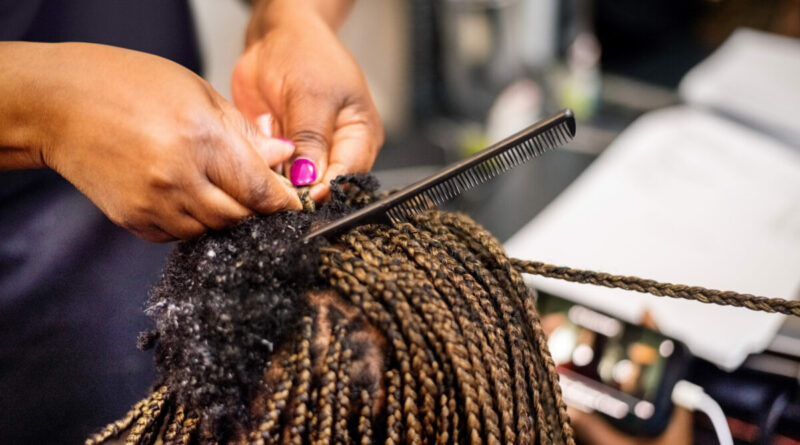Black Hair Stylists In Maine Service Community In Need Of Diversity
Black people have long built their identity through their hair. Whether we wear it the way it naturally grows or style it in a way that tells the story of where we’ve been, currently are, or where we hope to be, haircare is as paramount to Blackness as any other part of our shared experience. However, our hair needs continue to be ignored everywhere, from Hollywood movie sets to fashion runways.
According to NewsCenter Maine, for the 12.4 % of Black people living in Maine, access to essential haircare and styling is all but obsolete.
University of Maine Men’s Basketball Head Coach Chris Markwoodeven mentions it to recruits hoping to bring their talent to the Black Bears team.
“I think it’s something that we touch on pretty early in the process because it tends to come up,” Marwood said.
“People are wondering, ‘Am I going to be able to find a barber in this area.’”
Because our inner confidence can sometimes be linked to our outer appearance, the need to help Maine’s Black population show up in a way that truly supports their best selves often falls on the shoulders of a select few hair professionals. Stylist Angela Okafur caters to Black hair needs and often works on off days to accommodate her clients.
“A lady reached out to me, and she was like her son was going for a very serious procedure, and she was like all he asked of was to get his hair done,” she said.
“I had to do the hair on a day I don’t work.”
Okafur owns the only braid shop in town. Barbers Jake Stanley and Jordan Guy, both non-Black, have worked to establish trust with their Black clients while being empathetic to the struggles they face.
“I think it’s a shame,” Guy said. “I’m not going to say that areas of Maine are stuck in kind of old habits or old school habits, but I do think there needs to be a willingness to adapt and kind of draw more people to those areas, and I don’t think it’s necessarily a priority.”
Stanley says the one barber school in the state only offers verbal lessons on how to cut Black hair properly, something he feels affects the versatility of the professionals in the area.
Though haircare may seem like an unessential need, Okafur fears that the Black population in Maine will continue to diminish as people feel that the basic necessities of their lives are out of reach.
“If you’re not able to get what you need to feel good about yourself or for your children to feel good about themselves, chances are they’re gonna start looking at alternatives,” Okafur said.
“So this is very crucial and important. Not just for community building but also to, you know, retaining people here, which is what we really need in this area.”
RELATED CONTENT: ‘I Am My Hair’: Unilever Salon To Test Products To Understand Black Hair Care

